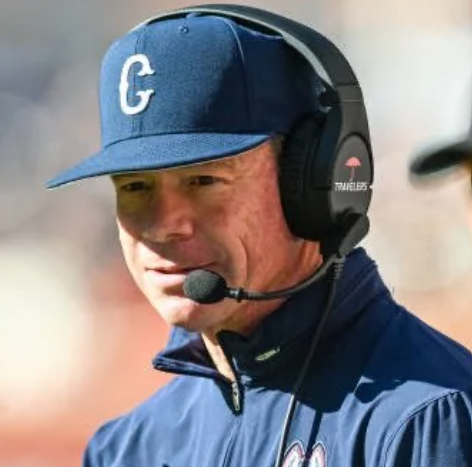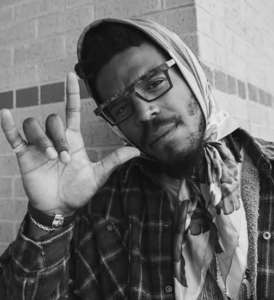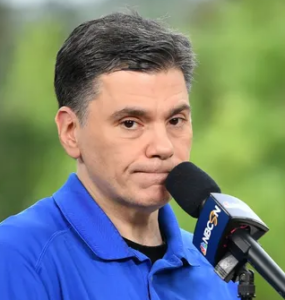Jim Mora’s allegations of tampering have ignited an important debate about the future of college athletics. As the NCAA navigates the complexities of the NIL era, the need for accountability and ethical conduct has never been greater
Mora’s willingness to speak out not only highlights the issue but also challenges the broader community to uphold the values that make college sports special.
The issue of poaching in college football is a complex and pressing challenge. Jim Mora’s bold stance sheds light on the darker side of the transfer portal and calls for immediate action to restore fairness and integrity to the sport.
Jim Mora’s outspokenness is emblematic of his commitment to fair play and the well-being of his players.
By taking a public stand, he not only defends his program but also sparks a broader conversation about ethics in college football.
Whether or not his allegations lead to concrete action, Mora’s message is clear: The rules matter, and those who break them will be held accountable.
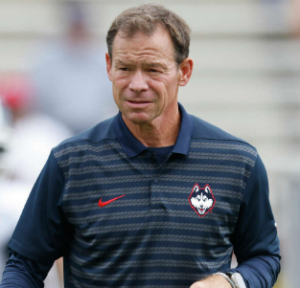
Also Read: Curt Cignetti Levels Up Indiana Football with a QB Development Masterstroke
Table of Contents
Jim Mora Takes a Stand Against Poaching in College Football
In a strong and candid statement, UConn Huskies head coach Jim Mora addressed the persistent issue of other programs attempting to poach players from his team, a violation of NCAA rules.1
As the Huskies bask in the glory of their recent 27-14 victory over North Carolina at the Wasabi Fenway Bowl, Mora has taken the opportunity to draw a line in the sand. He’s sending a clear message to rival programs engaging in unethical recruitment practices.
The NCAA transfer portal has transformed college football, creating opportunities for athletes to explore new teams while posing challenges for coaches trying to maintain roster stability.
Following UConn’s postseason success, their players are eligible to enter the transfer portal until Thursday. Mora’s warning underscores the potential for chaos when rival programs disregard the rules and reach out prematurely to players who have yet to declare their intentions.
This young man @HynesView Bleeds Blue. This talk is from 2022, this group embraced the challenge every single day and it paid off. Work to be done! https://t.co/NhPqR5BOmB
— Jim Mora (@CoachJimMoraFB) December 31, 2024
Retired Coach James Sutrick Weighs In
Adding weight to Mora’s claims, retired defensive line coach James Sutrick took to X (formerly Twitter) to voice his support.
Sutrick’s tweet highlighted the frustrations many in the coaching community feel about the lack of accountability in today’s college football landscape.
“I retired last year because of the transfer portal and the NCAA model of today. Zero accountability for coaches/Universities. SO excited to see you stand up for what’s right and good about this amazing business. Great job on your season and good luck with getting this fixed 🤞🏼,” Sutrick shared.
His statement reflects the discontent among seasoned professionals who have seen the sport’s integrity eroded by unchecked recruitment practices.
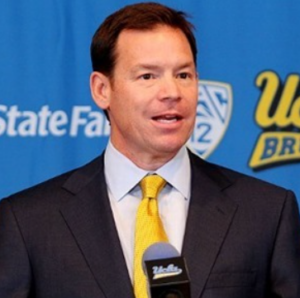
Jim Mora: The Broader Issue of NCAA Rule Enforcement
Mora’s remarks highlight a deeper issue: the NCAA’s ability (or inability) to enforce its own rules effectively.2
Despite clear regulations prohibiting contact with players who are not officially in the transfer portal, reports of tampering have become increasingly common.
This undermines the fairness and competitive balance that college football is supposed to uphold.
The NCAA’s current model has left many coaches, including Mora and Sutrick, questioning its efficacy.
While the transfer portal was designed to empower student-athletes, the unintended consequence has been a Wild West-like environment where some programs exploit loopholes with impunity. This raises the question: Is the NCAA doing enough to maintain order?
The Ethical Dilemma for Coaches and Programs
For coaches like Mora, the ethical dilemma is clear. On the one hand, they are responsible for nurturing young athletes and fostering a team culture.
On the other, they must fend off predatory tactics from rival programs eager to lure talent away. Balancing these responsibilities in the current climate is no small feat.
Mora’s firm stance serves as a reminder of the importance of integrity in recruitment.
Programs that respect the rules and focus on player development rather than opportunistic poaching set a standard for what college football should aspire to be. However, as Mora’s comments reveal, not all programs share this commitment.
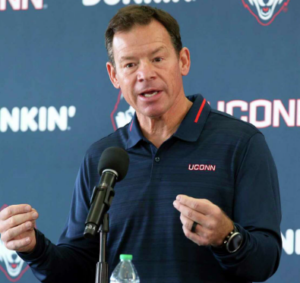
Jim Mora: Impact on Student-Athletes
Beyond the coaches and programs, the real victims of this unethical behavior are the student-athletes themselves.3
Premature contact and tampering create unnecessary stress and can disrupt their focus and loyalty to their current teams.
For young players navigating the complexities of college football, such tactics can be both confusing and demoralizing.
Ensuring that players are protected from undue influence is critical. The NCAA must strengthen its oversight and provide clear consequences for programs that engage in poaching. By doing so, it can create a safer and more equitable environment for all student-athletes.
The UConn Huskies’ Resurgence
Amid these challenges, the UConn Huskies have much to celebrate. Their victory over North Carolina at the Wasabi Fenway Bowl marks a significant milestone for the program.
It’s a testament to the hard work of Mora and his team, who have demonstrated resilience and determination throughout the season.
As the Huskies look to the future, maintaining momentum will be key. This includes retaining their current roster and continuing to build a program that attracts talent for the right reasons—not through unethical means but by offering a supportive and competitive environment.
Mora’s public warning is more than just a defense of his program; it’s a call to action for the NCAA. The organization must step up its efforts to enforce transfer portal regulations and hold violators accountable. Without decisive action, the integrity of college football will remain at risk.
The Road Ahead for UConn and Jim Mora
As the transfer portal window narrows, all eyes will be on UConn to see how they navigate this critical period.
Mora’s leadership and commitment to ethical standards will undoubtedly play a pivotal role in shaping the program’s future.
By standing up against unethical practices, Mora is setting an example not just for his players but for the entire college football community. His message is clear: Success should be earned, not stolen.
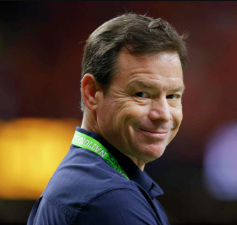
Also Read: David Bakhtiari’s Witty Dig at Aaron Rodgers as He Shatters NFL Records and Advertisement
Jim Mora: Recruiting Controversy
What Did Jim Mora Say This Week?
Jim Mora, head coach of the UConn Huskies, recently ignited conversations across the college football landscape with a series of fiery comments posted on X (formerly Twitter).
In his posts, Mora accused unnamed programs of engaging in unethical recruiting practices—specifically, tampering with his players.
Let’s dive into the details of what he said, the context behind it, and what it means for the future of college football.
The Tweets That Sparked It All
On Monday, Mora, 63, took to X to express his frustration:
“A simple note to the schools and coaches that have blatantly broken @NCAAFootball rules by tampering with our players in the last 24 hours.
We do know who you are, we will pursue all avenues to hold you accountable. We are excited that we’ve built a program where coaches have to cheat to beat us and we will protect that program. Think hard before you tamper with our players. #justgettingstarted”
This wasn’t the end of his public commentary. In a follow-up post, Mora doubled down:
“Not sure how we fix it, I do know we don’t ignore it. We will expose any program and coach that violates @NCAAFootball @NCAA rules by tampering with our players, it makes players anxious, it puts a dent in the lessons parents have taught them about honesty and integrity. I’m 100% for the Portal and NIL/Rev Share. I’m 100% against grown men cheating the rules and teaching players horrible Life lessons.”
View this post on Instagram
Context Behind Mora’s Statements
The allegations come at a time when the NCAA is grappling with seismic changes in college athletics. The advent of the transfer portal and Name, Image, and Likeness (NIL) deals has created a more dynamic—and sometimes chaotic—landscape for player movement and recruitment.
While these developments have empowered athletes, they’ve also introduced new challenges, including alleged tampering.
Tampering occurs when a coach or program contacts a player who is currently enrolled at another school without permission.
Such actions violate NCAA rules and undermine the principles of fair play and competition. Mora’s accusation suggests that these rules are not being universally respected.
UConn’s Recent Success: A Threat to Rivals?
The timing of these allegations is noteworthy. Under Mora’s leadership, the UConn Huskies have experienced a remarkable resurgence.
In his third season, the team achieved a 9-4 record and secured a victory over North Carolina in the Wasabi Fenway Bowl.
This marked UConn’s first postseason win since 2009 and the second bowl appearance during Mora’s tenure.
Such success inevitably attracts attention—and, it seems, unwanted overtures from rival programs.
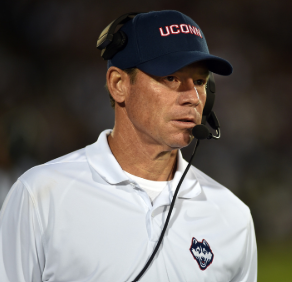
Jim Mora: The Transfer Portal
Mora’s tweets clarify his nuanced position on recent NCAA reforms:
- Pro-NIL and Revenue Sharing: Mora supports athletes’ rights to benefit from their talents and marketability. The NIL landscape has given players unprecedented opportunities to earn money during their college careers.
- Anti-Tampering: Despite his support for player empowerment, Mora draws a firm line against unethical practices. For him, tampering not only violates NCAA rules but also erodes trust and integrity—values he believes should be central to college athletics.
Broader Implications for College Football
The NIL era has brought about significant changes, many of which are positive. However, it has also blurred the lines between fair recruitment and unethical behavior.
Tampering allegations like Mora’s highlight the need for clearer guidelines and stricter enforcement to maintain a level playing field.
Mora’s vow to “pursue all avenues” to hold violators accountable raises questions about the NCAA’s role in addressing tampering.
How effectively can the organization police such behavior? And what consequences should programs face if found guilty?
Player Perspective: Caught in the Middle
One of Mora’s most poignant points concerns the impact of tampering on players. According to him, these practices create anxiety and conflict, undermining the life lessons of honesty and integrity instilled by their families.
For young athletes navigating their careers, this added pressure can be both confusing and demoralizing.
Mora’s comments also shed light on the Huskies’ growing reputation as a formidable program. His assertion that rival coaches need to “cheat to beat us” underscores UConn’s rising competitiveness.
For a team that was once overlooked, this newfound respect—albeit accompanied by controversy—marks a significant shift.
Ultimately, addressing tampering requires a cultural shift within college athletics. Coaches and administrators must prioritize integrity and fairness over short-term gains.
Also Read: Nico Iamaleava (NFL): Bio, Wiki, Age, Career, Parents, Siblings, Family and More
